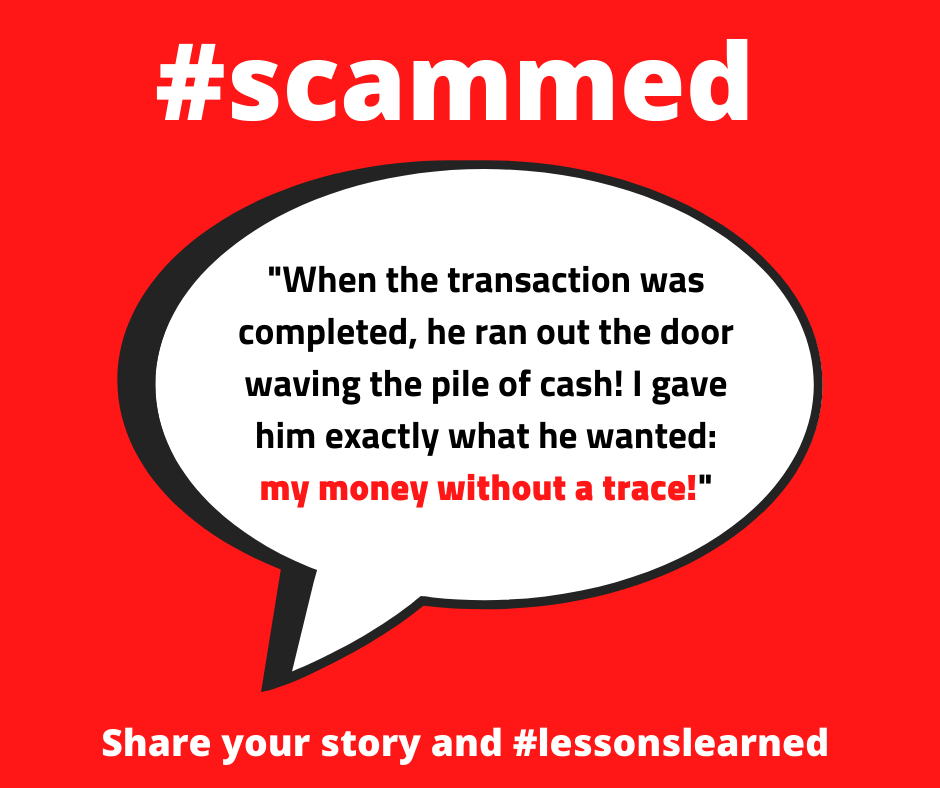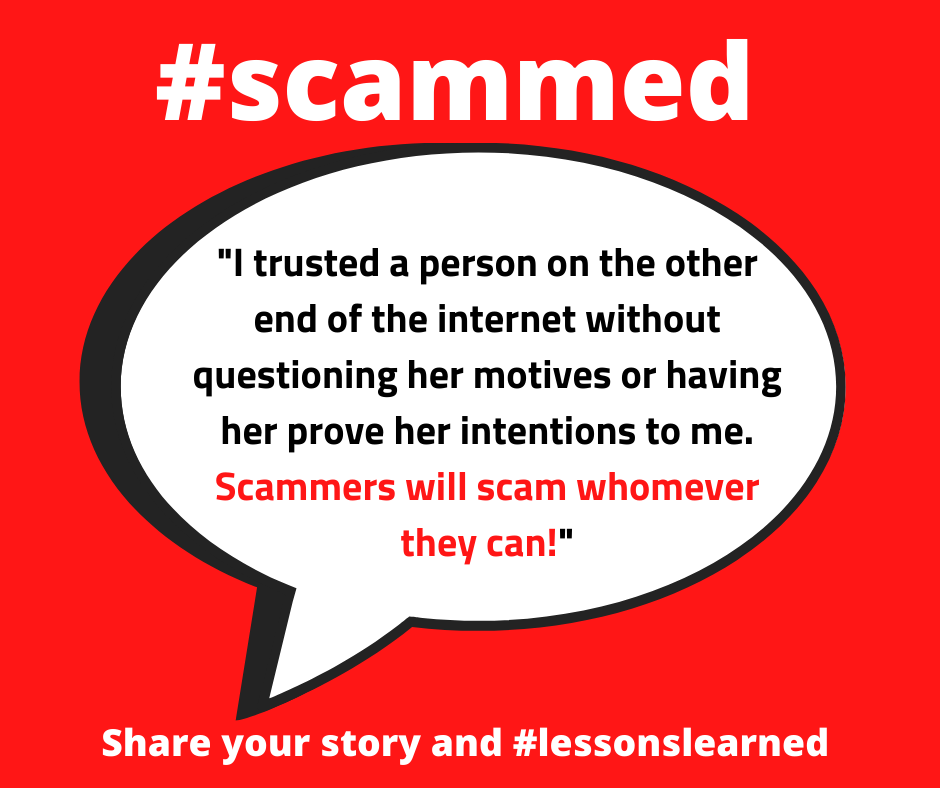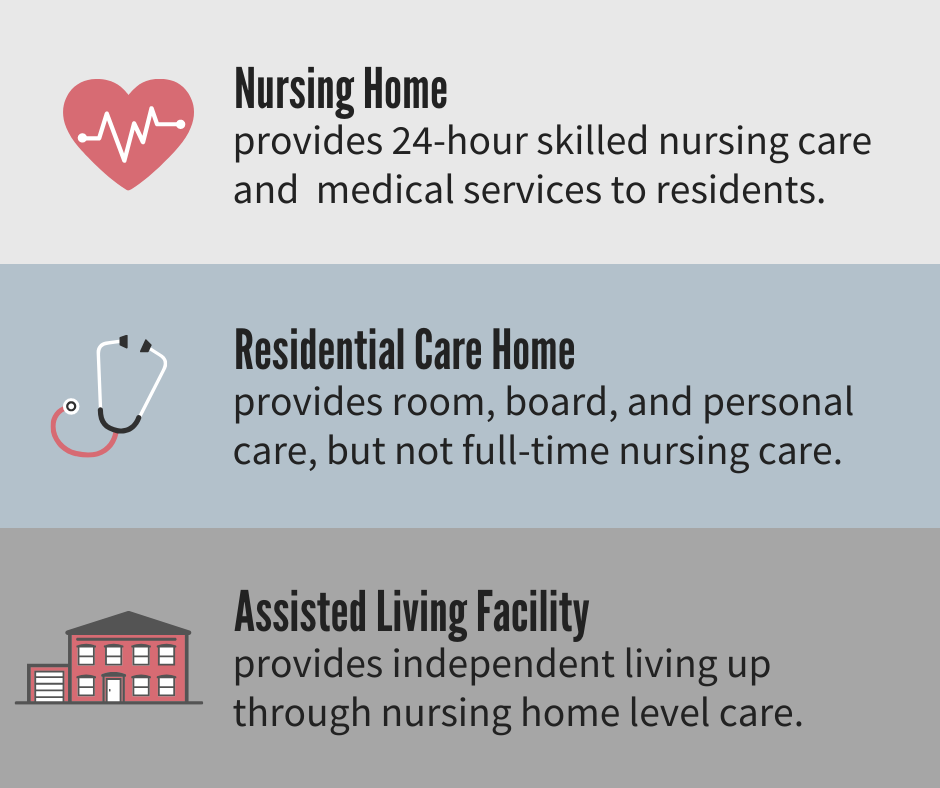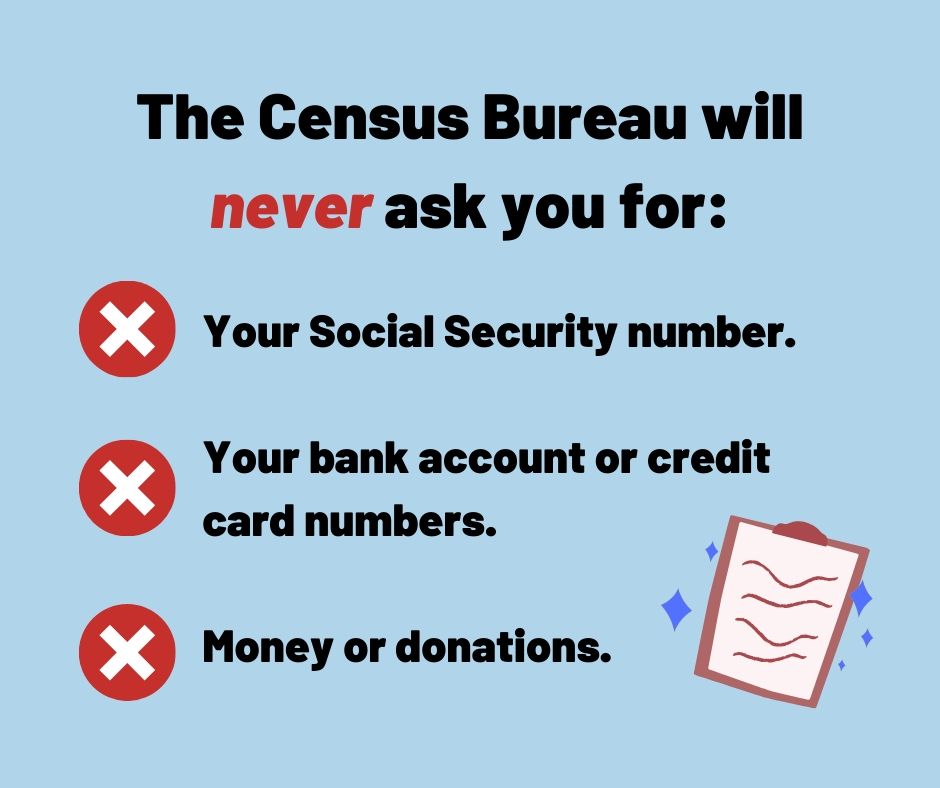This week, during National Consumer Protection week, our staff members are opening up and sharing stories of when they were scammed. Because no one is invincible to being #scammed. Let’s keep the dialogue moving, share this post and your own scam stories and lessons learned.

Entangling yourself in a scam to see where it goes, or generally thinking you are smarter than the scammer will lead to loss. I know, because I’ve been there. When I was living on my own far from friends and family, a magazine salesperson arrived at my door. After giving him a glass of water and listening to his dream of winning a contest affiliated with his magazine sales, I reviewed his long list of magazines and I agreed to subscribe. He instructed me to pay with a check or credit card. I knew doing this would give him all my account information and enable him to steal it. Or, I could pay cash. I grinned inside as I realized I had enough cash on hand to complete the transaction, $80. I gave it to him and signed up for four five-year subscriptions.
When the transaction was complete, he ran out the door waving the pile of cash and barreled into his friend’s car, as if leaving the scene of a bank robbery. I gave him exactly what he wanted—my money without a trace.
Though at the time I was much less savvy than I am now, I, like you, considered myself to be smart and in the know. I was college educated and self-sufficient. Before I was scammed, I had no reason to question the honesty or validity of the seller I engaged with. Thinking back to the incident now, I am awash with shame. I regret my gullibility and naiveté in thinking that a perfect stranger had no ill intent.
Here are my scam lessons learned:
- Practice safety first. Always check to see who is knocking on your
door by looking through the peephole or out a window before opening the door. I
was disarmed, because I expected a guest. Had I taken this step; I would not
have opened the door to a stranger. - If you open the door, it’s fine to
be kind to solicitors, but hospitality is not necessary. Keep solicitors
outside and in view of neighbors. - If interested, get all the
information and details in writing so you have time to consider and look into
the offer. - Never pay on the spot.
- Never pay for door-to-door purchases
with cash, money order, bank check, personal check, wire transfer, gift cards
(outside the merchant’s website), peer-to-peer payment, bitcoin, and any other
option that is not a credit card or known transmitter.
Once I was scammed, there are more things I could have done to identify the scammer to authorities and prevent others from being victimized:
- I could have documented the license
plate, make and model of the vehicle and reported the incident to the police. - I could have gotten copies of materials
related to the solicitation, and if he refused, written down the information. - I could have filed a complaint
with the Consumer Assistance Program so they could alert the public of such
scams.
Magazine and door-to-door scammers are still present today. At CAP, we most often hear about itinerant pavers that claim to be in the area with extra materials and request payment from you to secure a steep discount. Door-to-door meat sellers, chimney sweeps, and alarm installers have also cold called Vermonters and have taken money without fulfilling orders. The best way to avoid door-to-door scams is to wait before buying. Allowing yourself a waiting period gives you time to check into the company and the offer and to talk it over with others.
The scam artist hopes that the instilled shame that we “should have known better” will prevent us from sharing our story. Why? Because the best scam prevention tactic that we can all partake in is awareness. This week, I shared my stories of being scammed because I know I am not alone, and I don’t want others to experience what I have. The best thing we can do is band together as a strong Vermont community and fight the scammers by sharing our stories.
Have you ever been scammed? Tell us about it. Share this post and your own scam stories and lessons learned. The best form of prevention is awareness.
Contributing Writer: Crystal Baldwin




